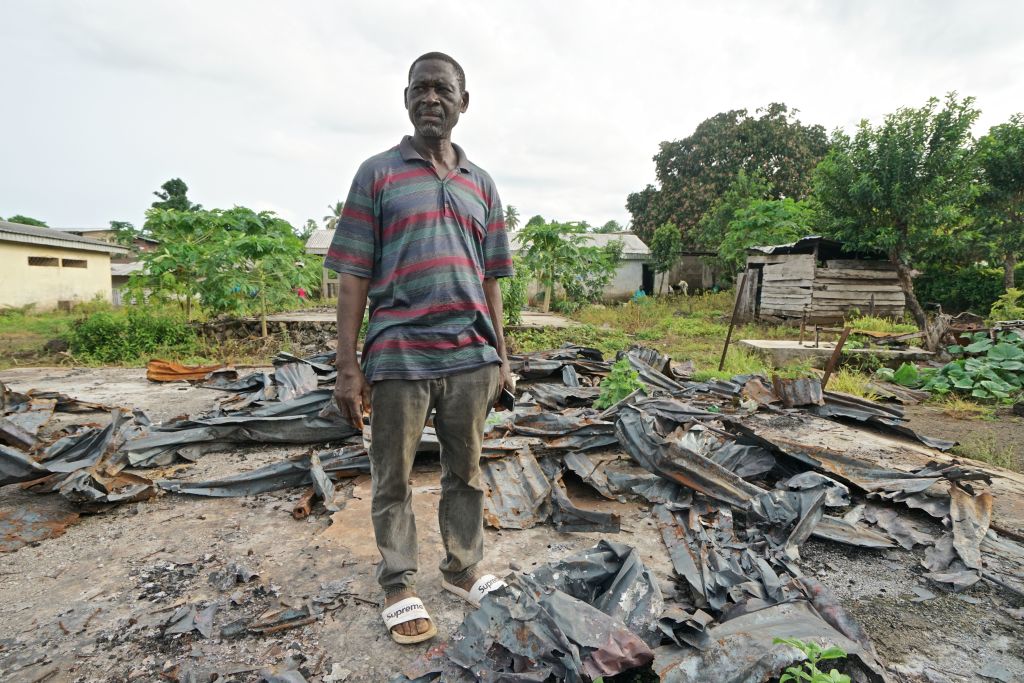Anglophone Separatists Step Up Attacks in Cameroon
ADF STAFF
A recent attack less than 40 kilometers west of Cameroon’s largest city, Douala, has citizens feeling unnerved and insecure.
On May 1, at least 15 heavily armed Anglophone separatists attacked a military post in the farming village of Matouke. It was the closest the rebels had come to the country’s most important economic hub since fighting began in 2017.
Officials and witnesses said the rebels killed at least six people — five Soldiers and one civilian — and wounded several others.
Douala, a city of about 4 million people, is a critical seaport for the region, supplying landlocked Chad and Central African Republic with 80% of their imports.
Francis Mbah, a clearing agent at the port, said an attack on the economic hub would impact the entire Central African region.
“This attack close to the economic capital of Cameroon is a sign that the government still has a lot to do to reinforce security permanently,” he told Voice of America. “It is a bad signal given that there are many citizens, Cameroonian citizens, living in the economic capital.
“This is a call for the government to step in and say this crisis must be stopped.”
According to Samuel Dieudonne Ivaha Diboua, governor of Cameroon’s Littoral region that includes Douala and Matouke, the military has increased its presence on the border between his region and the English-speaking Southwest region, where the rebel fighters came from.
The English-speaking separatist movement in the Northwest and Southwest regions of Cameroon has been in armed conflict with the government since 2017.
Tensions date back independence in 1961, as Anglophones claim discrimination, marginalization and forced assimilation by the French-speaking majority.
In 2017, Anglophone separatists, outraged after their peaceful protests were met with deadly crackdowns, declared their two regions would be called the Republic of Ambazonia. The government sent the army into the regions.
Dozens of local Anglophone militias have formed a network engaged in guerilla warfare against the better-equipped Cameroon national army.
At least 6,000 people have been killed in the asymmetrical battles. More than 1 million people have been displaced, including thousands who have fled to Nigeria.
Groups have reported widespread human rights abuses, including indiscriminate killings, torture, rape and other gender-based violence by the insurgents and the Cameroonian military.
Separatists say government forces have burned homes and entire villages and kidnapped hundreds of people.
Daniel Capo, a spokesperson and self-described deputy defense chief of the separatist group Ambazonia Defense Forces, described a recent incident in Maumu village, where he said Soldiers massacred six civilians who were drinking in a bar.
“There is no justification for killing innocent civilians,” he said in a May 2 video posted to social media. “This is the conduct of the Cameroon Army. They know exactly what they are doing.”
A national dialogue granted special status to the two Anglophone regions in 2019, but peace talks mediated by Switzerland failed to resolve the crisis. In January 2023, a Canadian-led peace process collapsed within days of its announcement.
“As the conflict drags on with no end in sight, it is critical that the government and separatists find common ground on which to rebuild trust and start forging a new path to a political solution,” the Crisis Group stated in a report published on March 31.
“Whether or not reforming the special status could serve this end is not clear, but after six years of fighting, it is worth a try.”
In the meantime, the rebels have vowed to attack all military posts along the borders with Cameroon’s Francophone regions.
One rebel leader who goes by the name “General Grandpa of the Buffalos” leads a militia that controls the Bali Nyonga local government area.
He has little hope for peace.
“Until our demand for the Ambazonia Republic is respected, we shall keep on fighting,” he told Inkstick Media.


Comments are closed.